Job related hearing loss can do permanent damage to your employees and increase the risk of a serious accident at work. Utilizing the proper protective equipment can protect your crew and your bottom line.
“…Eh, What’s That?”
Do you ever find yourself asking others to repeat themselves? Do you often accuse people of mumbling? Does the preferred volume of your television or stereo cause others to react as though a jet engine just flew overhead?
If you work in and around excessive noise pollution, your hearing loss may not be the natural effects of aging. You might be suffering from on-the-job hearing damage. Left unchecked, your hearing loss will continue to get worse and could lead to total and permanent loss. It’s important that you take precautions to protect yourself, and, if you're a business owner, your employees, from the dangers of workplace noise pollution.
Hearing Loss Is Not Just A Nuisance, It’s A Workplace Hazard
According to the CDC, hearing loss is the most common work-related illness, is present in every type of industry and can directly lead to numerous other health and psychological problems. You may be thinking that hearing damage is just a part of life and that nothing can be done but to resign yourself to investing in a good hearing aid, but hearing damage poses serious risks in the workplace for you and others. Loss of hearing can lead to workplace accidents ranging from an employee’s inability to discern the sounds of failing equipment, all the way to an employee not being able to hear the warning cries of others when an emergency response is required to move out of the way, stop machinery or slow down.
How Can You Know If You Are Suffering From Job-Sight Hearing Damage?
Noise is considered hazardous when it reaches 85 decibels or higher. Research tells us that about 22 million workers are exposed to hazardous noise levels, per year. To determine if you have lost hearing and to protect yourself moving forward, a comprehensive workplace assessment can be performed as part of a thorough medical surveillance program to evaluate and monitor employee hearing. Occupational Safety screenings are a necessary part of hearing conservation and can provide employers with best practices for employee hearing protection.
How Can I Protect Myself Or My Employees From On-The-Job Hearing Loss?
The how is almost as important as the why, because without the why, it is easy to become complacent around noisy equipment and machinery, increasing the opportunity for permanent hearing loss that could have been prevented with proper equipment and training. Because hearing loss cannot be detected as it is happening, workers might become irritated at hearing protection devices. That’s why it is important to find hearing protection that is as comfortable for, as it is effective. According to the Texas Department of Insurance, Division of Workers’ Compensation, “Studies have shown that one-half of the workers wearing hearing protectors receive one-half or less of the noise reduction potential of their protectors because these devices are not worn continuously while in noise or because they do not fit properly.” Making sure you protect your hearing also “prevents a host of other physical and mental health complications, such as poor balance, impaired memory, increased blood pressure, depression, social withdrawal and anxiety,” says Chad Coleman, Marketing Manager for a leading provider of workforce health and regulatory compliance solutions.
How Can I Implement An Occupational Health Management Program?
If noise hazards are an unavoidable component in your industry and work environment, contact Workplace Safety Screenings to help you create a customizable Medical Surveillance and Occupational Health Assessment Program that can help you protect yourself or your employees from on-the-job hearing loss.

.png?width=500&height=500&name=Blue%20and%20White%20Classic%20Shield%20Financial%20with%20Star%20Logo%20Design%20(1).png)


